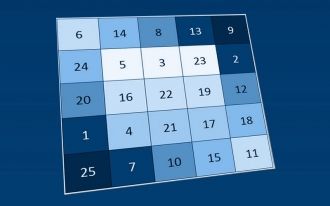- BRAINTRAIN |
- Blog |
- Brain Development |
- How to Become Organized

Bogdan Moroz 15.02.2020 1506 Comments
The inability to organize tasks and effectively allocate energy and productivity potential is often the main reason for unachieved goals and inefficient, wasted time. Despite the apparent busyness of each workday, it’s rare to end the day feeling satisfied with its productivity. Why does this happen? Must this disappointment follow us in all endeavors throughout life?
Maximizing every day, even every hour, is entirely achievable and not overly complex. The main enemies of productivity are often a lack of understanding of what consumes our time, poor planning (especially long-term), and deceptive multitasking, which exhausts without delivering results.
While pursuing self-development, dedicate time to organization. Train your brain in rational thinking to avoid wasting precious time on empty busyness that adds no value to your life.
Proper Time Valuation
“Do you love life? Then do not squander time, for that’s the stuff life is made of.”
Benjamin Franklin
People view time differently, and not everyone gives it the attention it deserves or understands its true value. Time is the resource that can realize even modest potential, while without it, even absolute potential remains untapped.
The Most Precious Resource
While many factors contribute to effective work in any field, time is a convertible resource that can be invested in replenishing others, like health, mental abilities, or finances.
When planning a new project, carefully analyze how much time it will take, whether you can achieve the desired outcome, and what might happen in unforeseen circumstances.
Time as a Measure of Value
Some may disagree that the value of work should be measured by time spent. However, we’re discussing personal value to you. You’re spending a portion of your life on it, and understanding this helps evaluate an activity’s relevance. You’ll see alternatives for spending that time and whether it’s truly necessary.
There’s a method for assessing items’ true value by considering not their monetary cost but the time required to earn that amount. This can clarify a purchase’s necessity. Are you willing to trade a week of your time for a new smartphone? For some, it might be a month.
Benefits of Planning Tomorrow
Observations show that both long-term and daily planning yield undeniable benefits, saving ten times the time invested in planning. Spend 15 minutes planning your next day, and you’ll save 150 minutes of work time by following an efficient plan.
Daily Plans
The simplest way to start structured time planning. This can be a paper journal or a smartphone app. Plans may take the form of a precise schedule or a prioritized To-Do list with a clear sequence of tasks.
Despite its simplicity, this approach is effective only when daily plans align with broader, measurable, time-bound goals.
Long-Term Goals
These typically span one to several years, with clear desired outcomes and deadlines. Daily goals logically contribute to long-term ones. If they don’t, question why you’re pursuing them.
Long-term goals aren’t standalone; they stem from your life’s larger projects, which must be defined.
Life Projects
These span extended periods, often tied to psychological milestones like age or life events—e.g., building a house by 40, embarking on a world tour upon retirement, or starting a business before having a child.
Such goals are vital for analysis and motivation in daily work. They help maintain focus during tough times and answer questions like “Why do I get up every morning?” or “What’s the point of my sacrifices?”
These life projects reflect your essence, rooted in your values and beliefs.
Life Values
Whether you acknowledge it, your values guide you, even unconsciously. The phrase “Money rules the world” applies only to those who prioritize money. Many successful people who adopt ascetic lifestyles disprove this, offering alternative values over material ones.
Everyone either consciously chooses their life values or adopts those imposed by society. These values drive all actions and define what’s possible or acceptable for an individual.
Practicing Productive Planning
Successful people early in their journeys sought logical ways to use time effectively, leading to proven principles from pioneers and their followers. These help sort tasks for a day or longer.
Pareto Principle
Widely known, but not always applied practically. It states that 20% of efforts yield 80% of results, while the remaining 80% of work produces only 20%.
How to use it? Stop seeking extra hours to do more, as much time is wasted. Focus on the most important tasks, which require less time. Evaluate activities carefully—can you skip them or delegate routine tasks?
Parkinson’s Law
Simply put: don’t allocate indefinite time to a task, or it will consume all your time. Estimate a reasonable time for each task and stick to that limit for an efficient day.
Ferriss Framework
Another daily planning scheme, emphasizing focus on a single task and rejecting multitasking. Ferriss suggests planning one critical task, three moderately important ones, and five short, simple tasks. This clear hierarchy prevents confusion about where to start: tackle the critical task first, then less important ones, and end with the least valuable.
One Boring Task for Breakfast
You may notice a pile of boring tasks lingering on your list, growing and sapping enthusiasm. Plan one such task at the start of your workday. Early morning offers peak productivity and enough willpower for tedious tasks. A shrinking list will boost future motivation.
Breaking Down Tough Tasks
Even the most daunting, uninteresting task becomes manageable if divided into logical blocks with time limits. Alternate them with engaging activities and schedule rest.
Conclusion
An organized person thrives by valuing time, the strongest motivator for planning. When listing tasks, reflect on your life’s broader expectations and align with your values. Leverage the wisdom of highly effective planners who generously shared their insights.




